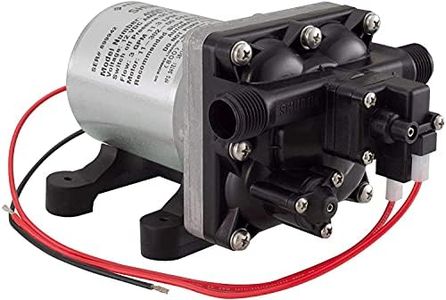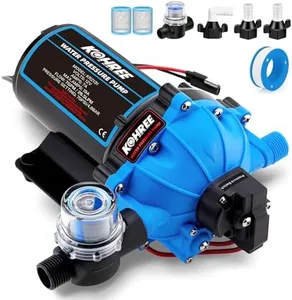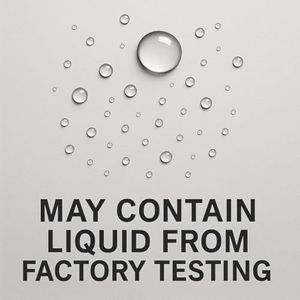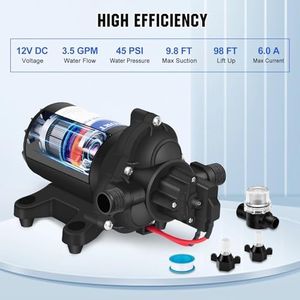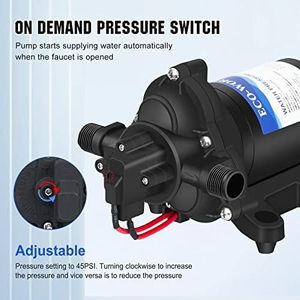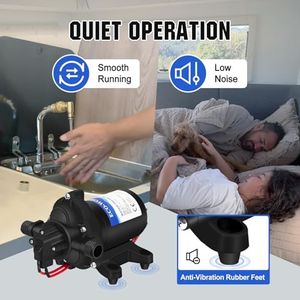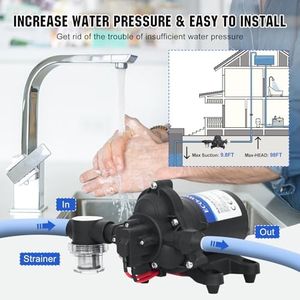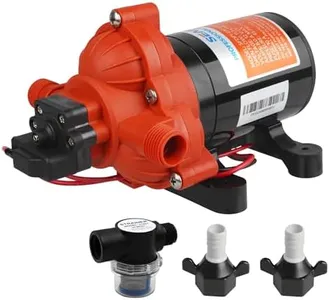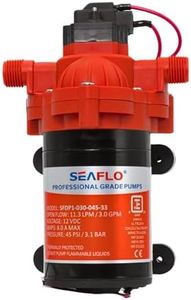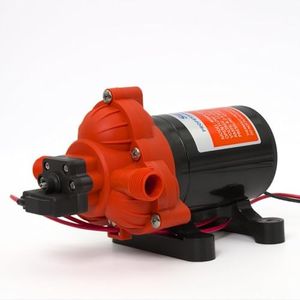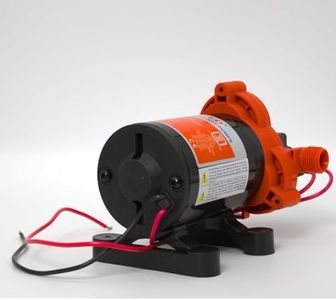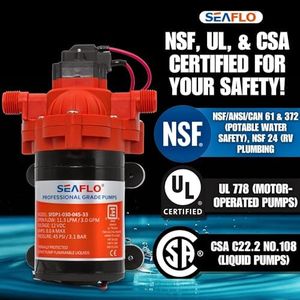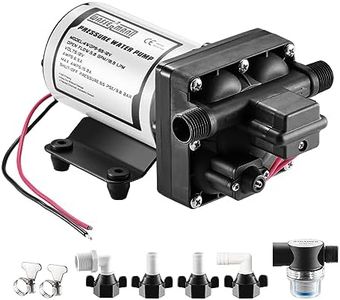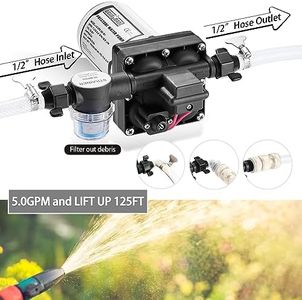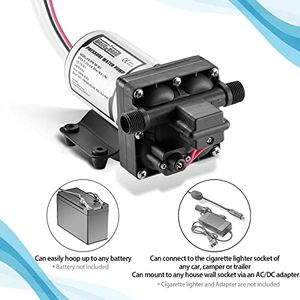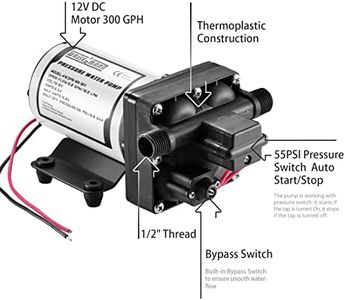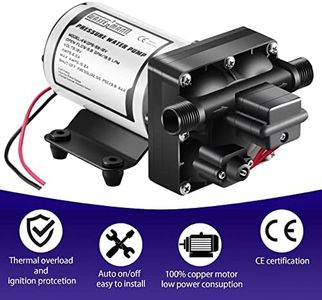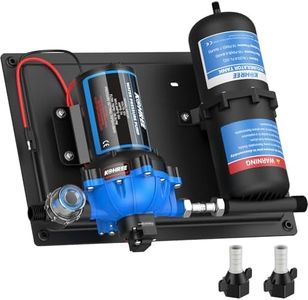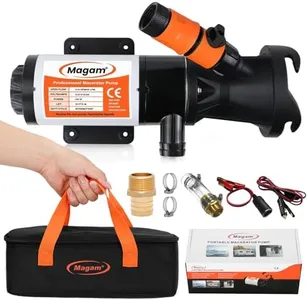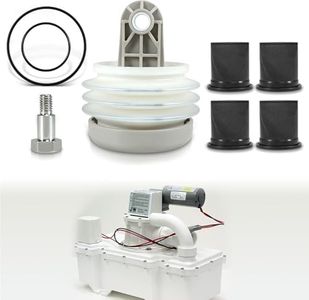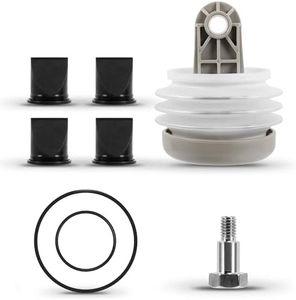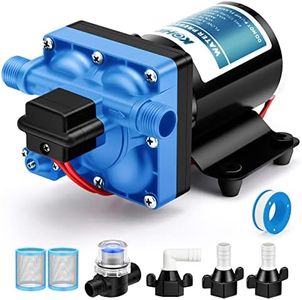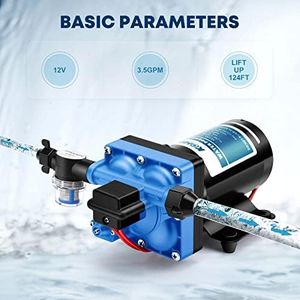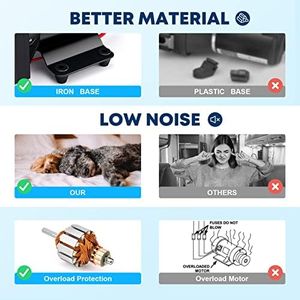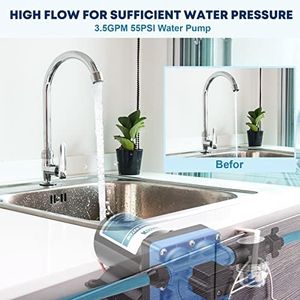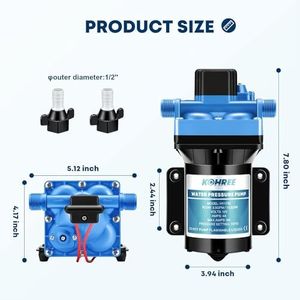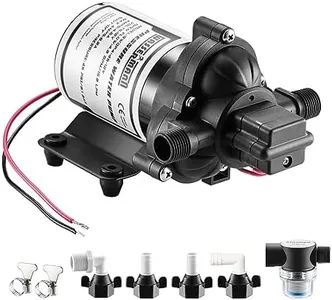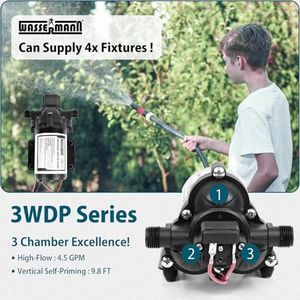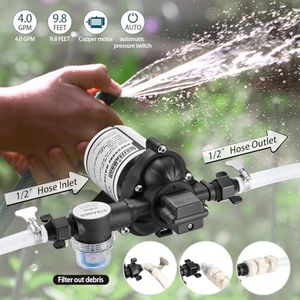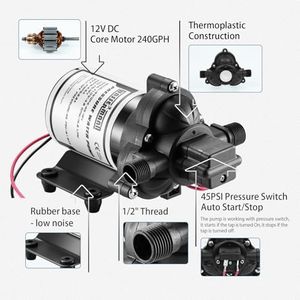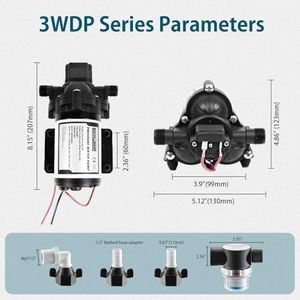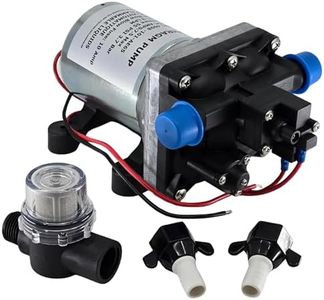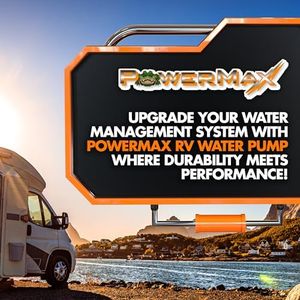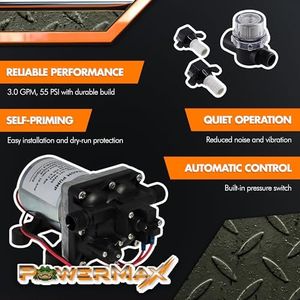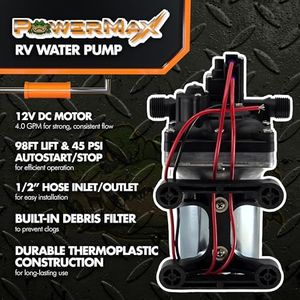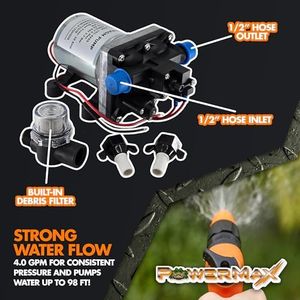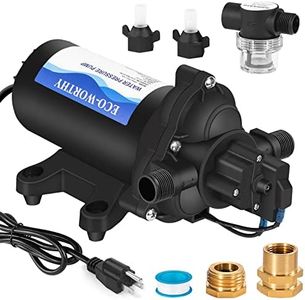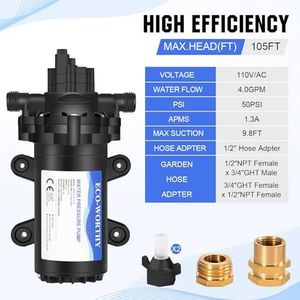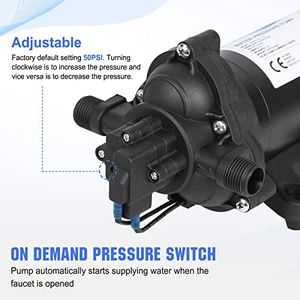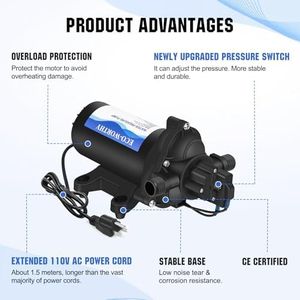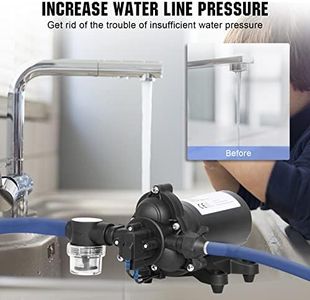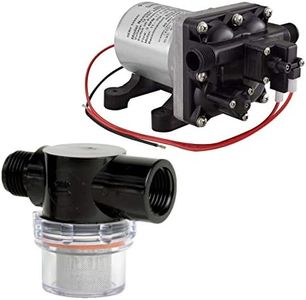10 Best Rv Water Pump 2025 in the United States
Winner
SHURFLO 4008-101-A65 New 3.0 GPM RV Water Pump Revolution, 12V
The SHURFLO 4008-101-A65 is a well-regarded RV water pump that suits those looking for efficient and reliable water delivery in their recreational vehicles. With a maximum flow rate of 3 gallons per minute, it provides sufficient water flow for various needs, making it ideal for camping and RV trips. It's powered by a 12V DC source, ensuring compatibility with most RV electrical systems.
Most important from
2314 reviews
Kohree RV Fresh Water Pump 7GPM 70PSI, 12V DC Water Pump, Self-Priming, Upgraded Five Chamber Diaphragm Pump with Heavy Duty Pressure Switch and Strainer for RV, Marine, Yacht, Caravan
The Kohree RV Fresh Water Pump is a solid choice if you need reliable water flow for your RV, boat, or camper. It delivers a good water flow rate of 7 gallons per minute with a pressure of 70 PSI, which is strong enough for everyday tasks like washing dishes or showering on the road. This pump runs on 12 volts DC, making it compatible with most RV electrical systems. It’s self-priming, meaning it can start pumping water without needing to be manually filled first, and it can handle some dry running without damage thanks to its thermal overload protection—this helps prevent overheating and extends its life. The automatic start-stop feature is convenient as you don’t have to switch it on or off manually each time you use water.
Most important from
515 reviews
Top 10 Best Rv Water Pump 2025 in the United States
Winner
SHURFLO 4008-101-A65 New 3.0 GPM RV Water Pump Revolution, 12V
SHURFLO 4008-101-A65 New 3.0 GPM RV Water Pump Revolution, 12V
Chosen by 1259 this week
Kohree RV Fresh Water Pump 7GPM 70PSI, 12V DC Water Pump, Self-Priming, Upgraded Five Chamber Diaphragm Pump with Heavy Duty Pressure Switch and Strainer for RV, Marine, Yacht, Caravan
Kohree RV Fresh Water Pump 7GPM 70PSI, 12V DC Water Pump, Self-Priming, Upgraded Five Chamber Diaphragm Pump with Heavy Duty Pressure Switch and Strainer for RV, Marine, Yacht, Caravan
SEAFLO 33 Series 12V DC RV/Camper/Boat/Off-Grid Fresh Water Pressure Pump –12V, 3.0 GPM, 45 PSI, On Demand Self-Priming, Built-In Pressure Switch - NSF, CE & Rohs Certified, UL Listed, 4-Year Warranty
SEAFLO 33 Series 12V DC RV/Camper/Boat/Off-Grid Fresh Water Pressure Pump –12V, 3.0 GPM, 45 PSI, On Demand Self-Priming, Built-In Pressure Switch - NSF, CE & Rohs Certified, UL Listed, 4-Year Warranty
WASSERMANN RV Water Pump 12V DC, Self Priming Diaphragm 5.0 GPM 55 PSI, Water Pressure Pump with Pressure Switch, for RV Marine Yacht Lawn Garden
WASSERMANN RV Water Pump 12V DC, Self Priming Diaphragm 5.0 GPM 55 PSI, Water Pressure Pump with Pressure Switch, for RV Marine Yacht Lawn Garden
Kohree RV Water Pump 3.5GPM 55PSI 12V Quiet DC Diaphragm Fresh Water Pump for Camper, RV Marine, Yacht, Caravan, with Pressure Switch
Kohree RV Water Pump 3.5GPM 55PSI 12V Quiet DC Diaphragm Fresh Water Pump for Camper, RV Marine, Yacht, Caravan, with Pressure Switch
WASSERMANN RV Pump, 12V Self-priming RV Water Pressure Pump 4.0GPM 45PSI with Pressure Switch, for RV Marine Camping Yacht Garden
WASSERMANN RV Pump, 12V Self-priming RV Water Pressure Pump 4.0GPM 45PSI with Pressure Switch, for RV Marine Camping Yacht Garden
RV Water Pump 4008-101-A65/E65 | 3.0 GPM - 55 PSI | 12V Camper RV Water Pump | On Demand Diaphragm | Quiet & Smooth Operation | Self Priming | Quick Attach Fitting | 1 Pump + 1 Strainer
RV Water Pump 4008-101-A65/E65 | 3.0 GPM - 55 PSI | 12V Camper RV Water Pump | On Demand Diaphragm | Quiet & Smooth Operation | Self Priming | Quick Attach Fitting | 1 Pump + 1 Strainer
ECO-WORTHY 33-Series Industrial Water Pressure Pump 110V AC 4.0GPM 50PSI RV Fresh Water Diaphragm Pump include Garden Hose Adapters for Irrigation Marine Boat Sprinkler Faucet
ECO-WORTHY 33-Series Industrial Water Pressure Pump 110V AC 4.0GPM 50PSI RV Fresh Water Diaphragm Pump include Garden Hose Adapters for Irrigation Marine Boat Sprinkler Faucet
Shurflo 12 Volt RV Water Pump 3.0 GPM - 4008-101-A65 / E65 & 1/2" | RV Plumbing & Camper Water Pump | Twist-On Optional Pipe Strainer Bundle | Each Has A Unique Design - (Receive 1 Pump with Strainer)
Shurflo 12 Volt RV Water Pump 3.0 GPM - 4008-101-A65 / E65 & 1/2" | RV Plumbing & Camper Water Pump | Twist-On Optional Pipe Strainer Bundle | Each Has A Unique Design - (Receive 1 Pump with Strainer)
Our technology thoroughly searches through the online shopping world, reviewing hundreds of sites. We then process and analyze this information, updating in real-time to bring you the latest top-rated products. This way, you always get the best and most current options available.

